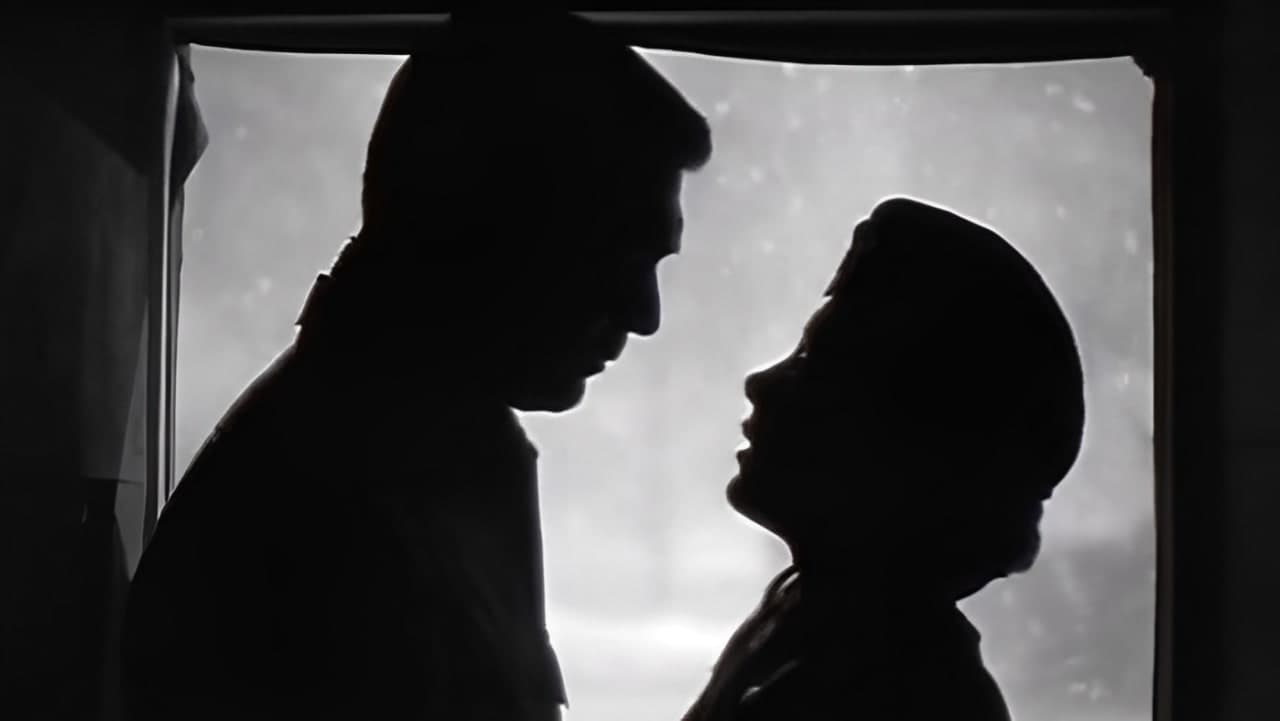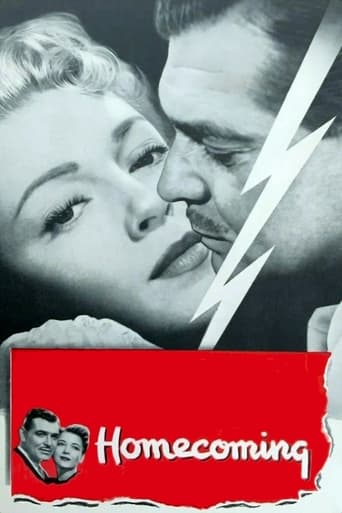Kattiera Nana
I think this is a new genre that they're all sort of working their way through it and haven't got all the kinks worked out yet but it's a genre that works for me.
Pacionsbo
Absolutely Fantastic
Tyreece Hulme
One of the best movies of the year! Incredible from the beginning to the end.
Delight
Yes, absolutely, there is fun to be had, as well as many, many things to go boom, all amid an atmospheric urban jungle.
fnj2002
What a gem this story is! Here you will find no platitudes; no heroes 10 feet tall; no heels - most of all no heels. This is about the most caring, life-affirming story you are ever going to find, and it is done without any syrup, nor any gratuitous and tiresome acting-out of missteps.There is a a single scene near the end which implies that a single misstep MAY have been committed, but sorry to tell you, you are going to have to work out for yourself what did or didn't happen, because it's not spelled out. It was brave rather than a cop-out to present a pivotal scene that way.The film is technically excellent. The scene composition is superb. You have never seen a WW2 field hospital so meticulously and realistically re-created. There is a scene viewed through the door of a tent where someone walks away that is so amazingly technically well done (as well as evocative) as to be amazing. I can't tell you that the snow falling in that scene was real, but it LOOKED absolutely real. The fadeout as the figure walked gradually into the falling snow was perfect. It's a little thing that a film nut notices, because it's hard to do.The messages are about finding one's humanity, daring to need, and daring to reach out to someone to need you back. By the end, you may find yourself touched so deeply as to be shaking.
SimonJack
Few movies have shown the nitty-gritty of the field hospital and medical corps in war. "Homecoming" is one that does, with much realism and intensity. We are spared the gore of viewing the bloody and torn bodies ourselves. But the manners, expressions and actions of the cast convey the ugly effects of war. And the long days of 16-hour stretches of operating, the fatigue of the doctors and nurses, and the intense working conditions – often with bombs and shells exploding around them – show us another side of war. We see these dedicated noncombatants struggle and sacrifice to repair and save lives. For this alone, "Homecoming" is an outstanding movie. But throw in a romance, and the film stands out as even more extraordinary. But, not just any, typical war-time romance of soldier meets girl. That would have cheapened this film. Rather, "Homecoming" has a complex and complicated romance. It's one that probably happened in real life many times during the war, but that few films have tried to tackle. It's a love that developed slowly between the chief surgeon and his nurse. Unlike the typical fare of today, two people don't jump into the sack together. This romance is a deeper, sincere and much more meaningful love. It's a love that emotes respect and caring. And it's a love of forbidden passion that can't go any further because the doctor already has a beautiful wife whom he loves back home. Clark Gable and Lana Turner give their all to their roles in conveying the struggle they have in their growing love. They give tremendous performances in their roles as war-time surgeon and Army nurse. And, Anne Baxter, as the wife back home, also gives an exceptional performance. This may be Gable's finest acting role. He moves adroitly through his changing character. He starts out as a highly confident, self-assured and mostly self-centered elitist physician. By film's end, he has become less self-assured – as he states himself, but more aware of his patients and the needs of people. He has become a caring, dedicated doctor. Turner's character is out of her usual glamor role. Instead, she's an Army nurse who has a six-year-old son by a husband who was killed in China as a pilot in the Flying Tigers. She is a serious, hard-working and dedicated professional who starts out disliking the rich-kid doctor. And Anne Baxter is the loving wife of the doctor who becomes jealous of the nurse, then understanding, then resolute and willing to fight to keep her man. As I said, the film is about complex relationships. It's about learning to live (a reference in the film), and about growing and maturing and loving. All of this is set in the midst of World War II in Europe and on the home front. It's a truly exceptional movie and one that belongs in every film library. This movie came out just three years after the end of the war. While most veterans for years didn't like to talk about the war or their experiences, films such as this probably did a lot to help in post-war adjustments. They helped the people who were on the home front get a sense of what it was like for loved ones who went off to war. Indeed, this idea of understanding is a nice thought in the closing scene.
vincentlynch-moonoi
In terms of traditionally popular American films, I cannot say this is a great film. Yet, I can say that I am very impressed by it. What I mean is that this is, in reality, a totally serious film effort. It is not soapy, it is not (for the most part) exciting. It is a serious story of a man who meets a woman and falls in love, knowing that after the war he will return home to his wife.It has been said that World War II changed Clark Gable. And this is a very different Clark Gable from the one we got used to in the 1930s. Here he is something he never was back then -- subtle. His performance here is very steady, very calm, very mature...and speaking of mature, he certainly looks older here. It is a testament to his acting ability that he is totally believable as a surgeon in this film.When I was young I always felt that the two most beautiful women in the world were Sophia Loren and Lana Turner. I was stunned years later when I saw Lana Turner do an hour-long interview on one of the daytime talk shows. It wasn't that she was dumb...she was...not a real human being. But, this film is interesting because here she is less beautiful, just rather normal looking, and yet totally convincing in her role as an army nurse.Another treat in watching this movie was discovering John Hodiak. I knew the name, but not the actor. What a shame that he died of a heart attack at such a young age. Great potential. And, Anne Baxter is fine here as the wife.There are many scenes in this film that are rather impressive. Was that real snow in Europe? It was certainly real mud in the jeep scene. High production values here.There were, in my view, to mistakes in the filming of this movie. First, a part of the American town that was described in the film as being almost ghetto-like, appeared rather pleasant when visited by Anne Baxter. But more serious was that after rather deep and divisive discussions between the characters of Gable and Hodiak, toward end of the film the discussion when they are reunited after the war, and where Gable apologizes for his shallowness, in only described briefly by Gable. It could have provided a powerful scene between Gable and Hodiak.If you like an occasional serious film, you will be impressed with this movie. Highly recommended.
blanche-2
Clark Gable, Lana Turner, Anne Baxter, John Hodiak, and Gladys Cooper star in "Homecoming," a 1948 film about wartime and its aftermath. Gable plays a surgeon, Lee, who falls for a nurse (Turner) with whom he puts together the wounded, endures a life with only the barest of necessities, sits in shelters, and dodges. Back home, his devoted wife (Baxter) realizes by reading his letters that she's losing him.World War II has been romanticized often in films and in music - somehow, it is perceived by people who lived through Vietnam, Desert Storm, and our current conflicts as being somehow a cleaner war. But no war is clean, and there were some homecomings that were difficult as well. This was touched upon in "The Best Years of Our Lives," and very well here.The story is brought to life by its players. The role of Snapshot the nurse is a different one for the glamorous and beautiful Turner than what she was normally handed - the curse of the beautiful in Hollywood. She was capable of much more, and she gives a strong performance as an outspoken soldier who finally lets her vulnerability show. The stalwart Gable gives us a man who realizes the detached attitude he had toward his patients at home will no longer work, and he has to rethink himself and his life. Baxter is the "one left out," who can't experience the war, and she gives an excellent portrayal of a woman who loves her husband but doesn't know what to expect from him when he comes home. "I know he's changed," she laments, "but why couldn't we have changed together?" Her real-life husband, John Hodiak, looks quite handsome but doesn't have much to do as a family friend - his brief brush with stardom was a few years away.A very nice movie that shows that homecoming can be uncomfortable and bittersweet.

